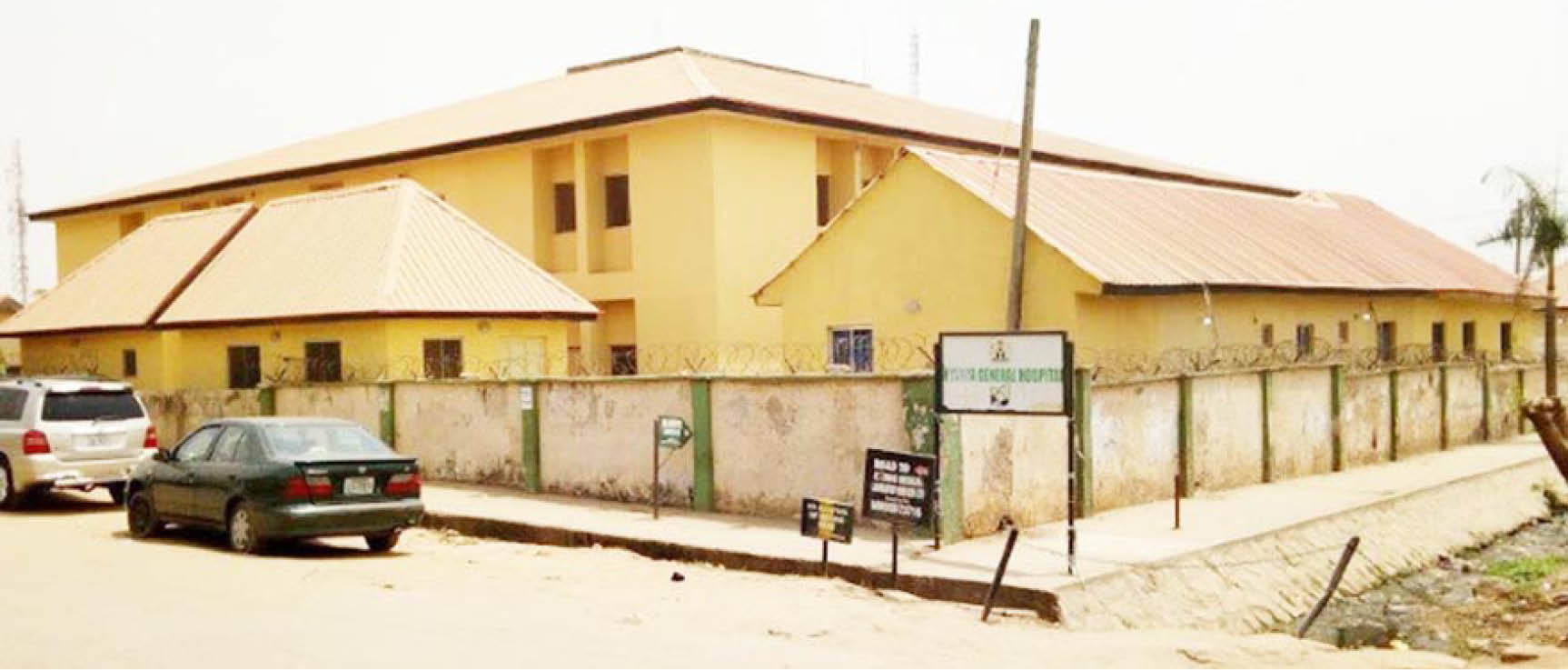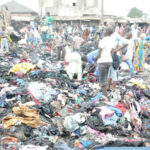Some public secondary and tertiary health care institutions in Abuja, the Federal Capital Territory (FCT) are bedevilled with challenges that affect their quality of service delivery, many residents have lamented.
Findings by our reporters revealed that these challenges include inadequate manpower, poor electronic medical records, overcrowding, poor emergency services and attitude of staff, few or no ambulance services and ineffective national health insurance system.
- How explosive targeted at bandits killed 7 Zamfara kids
- Kabawa: Where 6 deposed northern emirs are ‘resting’
Others are poor infrastructure, insufficient primary health care facilities, poor attitude of staff and long queues and waiting time, among others.
An Abuja resident who identified himself as Umar said he accessed care at the Wuse District Hospital but always faced the challenge of overcrowding and long queues there.

Umar said he often went to private hospitals whenever he needed urgent medical attention.
He said, “If you want smooth, quick and sharp services whenever you have any health issue, the best place to go is a private hospital.
“The long queues that greet me whenever I go to the Wuse District Hospital often discourage me. Whenever I cannot afford to go to a private clinic, I just patiently wait until it is my turn.”
According to him, whenever he needs to see a doctor he often goes very early, adding, “No matter how early you come, you will always meet a lot of people already on the waiting list.”
He urged the government to employ more doctors, nurses and other clinical staff in public hospitals in Abuja so that they could attend to more people faster.
“It seems they are sometimes overwhelmed with crowd, and if that continues, they may not be able to give their best,” he added.
During a visit to the Wuse District Hospital, our reporter observed that despite the COVID-19 pandemic, the hospital is still crowded as patients awaited their turns to see the doctors.
Nyanya district hospital
Findings at the Nyanya District Hospital revealed that limited services are being offered. Many patients lamented that they were often referred to the Asokoro District Hospital whenever they needed critical care.
A resident who did not want her name mentioned said the Nyanya District Hospital needed to expand its services and improve on patient-staff relationship.
She lamented that many doctors and nurses at the hospital were very rude to patients.
Daily Trust on Sunday learnt that staff members of the hospital often tell patients that the facility mainly focuses on care for women and children, and therefore, refer other cases to Asokoro District Hospital.
They also say they only admit emergency cases (mostly women and children) for only 24 hours before referring them to other public hospitals.
A female patient said she had a very bad experience when she fell ill two months ago and was rushed to the emergency unit of the hospital.
“Doctors were around but just looking at me and other patients. A lady even collapsed while I was there and they did not do anything. They ignored us and kept walking about.
“After spending 30 minutes there without being attended to, I told my relatives to rush me to a private hospital nearby so that I would not die. I was rushed there and was admitted for three days before I got better,” she narrated.
Another resident said the Nyanya District Hospital could do well with a better ambulance services. She said when her aunt was hospitalised there and later went into a coma, she had a hectic time moving her to another hospital because of lack of ambulance.
At the Maitama District Hospital, Martins Umeh, whose wife was just delivered of a baby, said he enjoyed the services of the hospital, unlike some other public hospitals he had visited in the past.

He said medical personnel attended to patients promptly.
But Mr Lucky, whose wife died some time ago, said he did not have a good experience in the hospital. He said he waited for hours on end when he took his wife’s remains to the hospital’s mortuary.
“We were accessing care in a private hospital at Kado before my wife died and we were asked to bring the corpse here to deposit in the mortuary. I waited for more than six hours before they could attend to me. And they said there was no space. It was really devastating.”
Another patient in the hospital, who identified herself as Grace, said she had been accessing services in the facility for some months and was satisfied with the level of care she received.
“They have capable doctors and other hands,” she said.
She, however, added that services could still be improved at the laboratory, radiological and x-ray sections.
Another patient who craved anonymity said her only challenge in the hospital was the crowds at cash points for payment of services.
“They need to employ more hands to relief people of the stress of standing for hours, just to pay for tests, drugs and other services,” he said.
Congestion at Kuje hospital
Mrs Mariam Yahaya, who attends antenatal clinic at the Kuje District Hospital, said there was always a lot of crowd at the antenatal clinic.
She, however, said that to manage the situation, pregnant women had been separated into different groups, adding, “If you are patient you would be attended to in your group during antenatal sessions.”
During visits to the Kubwa General Hospital, our reporter met patients and relatives complaining of poor care at the emergency unit.
They lamented that patients, including babies, had been turned away for lack of spaces, even when they were in very critical conditions and abandoned outside for hours until they got tired and left for private hospitals, even at very late hours.
A woman who identified herself as Biola said that aside the challenges at the emergency unit, she had been given drugs at the pharmacy that were different from what was prescribed by doctors. She also said she often faced hardship during payment for services as a result of network disruptions in the electronic system.
Mr Julius Omana, another resident, said the mention of Asokoro District Hospital evoked painful memories in him. He lost his wife there two years.
He said his pregnant wife complained of pains when she was admitted but was ignored by the nurses until she died.
However, an outpatient in the hospital told our reporter that he had been accessing health care there without any problem.
During a visit to the hospital, our reporter observed that social distancing was not strictly enforced in some units that had a large number of people in attendance.
Also, mortuary facilities are overstretched in some of the hospitals, including the tertiary hospital in Gwagwalada. According to residents, the regular response from mortuary attendants is: “There is no space.”
Some residents said that sometimes preferential treatments were given while depositing corpses.

A man who did not want his name mentioned said he lost his brother few weeks ago and had to go to the University of Abuja Teaching Hospital (UATH) to deposit the corpse, but he was told there was no space.
He also claimed that when he was still there trying to figure out what to do, another group of people brought the remains of their loved one and the corpse was collected and space given to it.
“What I know is that if it is a big man there will be space, but for poor people, there may not be space in the mortuary,” he said.
But the chairman, Medical Adversary Committee and director of clinical services, UATH, Dr Nicholas Baamlong, said it was not true that the hospital gives any preferential treatment to any particular people for mortuary services, adding, “It is just people’s perception.”
He said the challenges facing the hospital in the area of mortuary was space, adding that the cold room could only accommodate 50 corpses at a time, and that is why the remaining corpses have to be laid on the ground.
“As a result of the space, we encourage relatives not to keep the corpse for too long in the mortuary before removing them for burial,” he added.
Dr Baamlong also said the hospital was running smoothly and didn’t keep people for too long before they were seen by doctors.
“There are personnel attending to patients in every unit. It is only at the emergency session that we record high numbers, and the hospital built an extension; but unfortunately had to give that space up for COVID-19 cases.
“But as soon as the COVID-19 centre is completed, there will be enough space for the emergency unit to operate,” he said.
He also said manpower was not enough in all the clinical units, but added that before the hospital employed personnel, due protocol must be followed and approval sought from relevant authorities.
He said COVID-19 affected manpower too as some health workers who test positive have to go on quarantine, and that puts pressure on other staff.
FCTA reacts
Responding, the acting General Manager, Hospitals Management Board, Dr Francis Alu, said the Federal Capital Territory Administration (FCTA) hospitals offered quality services, and that is why they are crowded.
He said patients came from far and near to access care in such health facilities because of the quality of services, especially when compared to other states.
“The crowds people are complaining about is a recognition of what we are doing well. The services we are offering in our hospitals are of the highest quality and are affordable as well. If we were not doing the right things people would not come to our facilities,’’ he said.
Dr Alu, however, acknowledged that COVID-19 had impacted negatively on the staff strength of the health facilities, explaining that as frontline workers, most of them have been infected at one point or another and have had to isolate and get treated.
“We have not operated at full staff strength under the COVID-19 pandemic, but that is not by our making. Remember that doctors and nurses are also human beings, and some of them have contracted the virus at one point or another and they have had to isolate and get treated. And when that happens, we no longer have the staff strength to attend to patients the way they want. But we are doing our best to ensure that we continue offering the best services,’’ he added.
He assured that when Utako and other district hospitals come on stream, the burden on the existing ones would be lifted and crowds would greatly reduce.
On the issue of morgues getting filled up, he advised residents to always bury their dead on time, saying a situation where corpses are left in the morgues for three months or more was responsible for the problem of lack of spaces.
By Ojoma Akor , Olayemi John-Mensah & Terkula Igidi

 Join Daily Trust WhatsApp Community For Quick Access To News and Happenings Around You.
Join Daily Trust WhatsApp Community For Quick Access To News and Happenings Around You.


